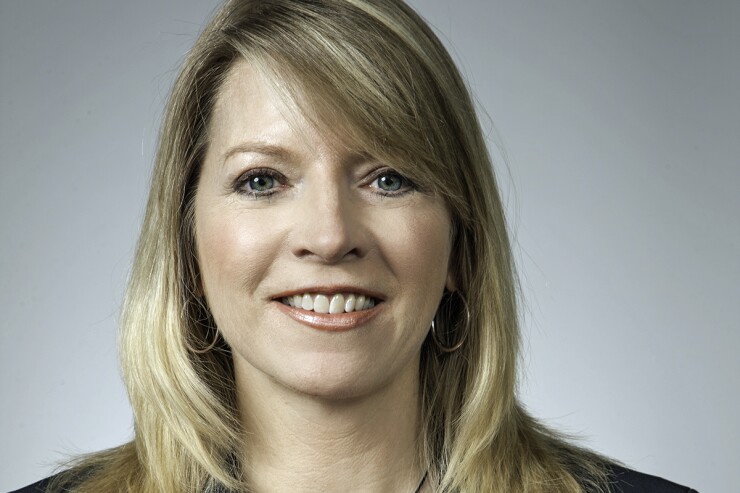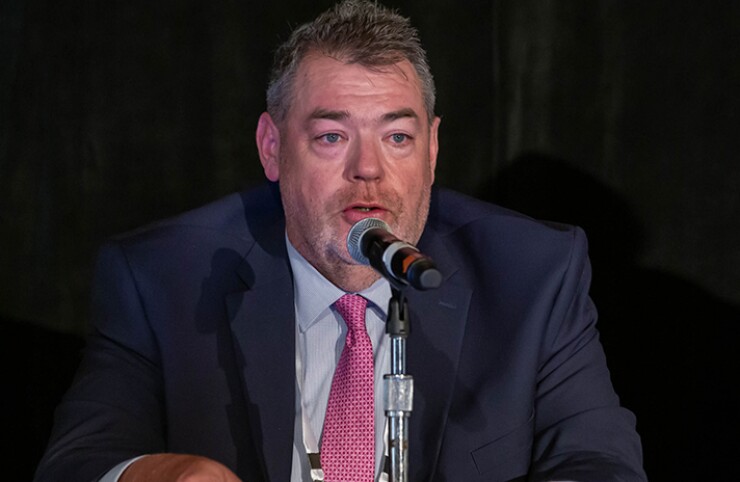After choosing the firms in the deal team for a bond refunding, Wisconsin’s debt manager David Erdman decided it would serve as a good vehicle to act on a diversity goal that had been on his mind. The end result was a crew almost exclusively made up of women.
In cases where a woman wasn’t tapped to represent a firm, the lead members of the team included Black professionals.
The $306 million refunding, using a tax-exempt forward delivery structure on one series and a taxable structure on a second, priced earlier this month with UBS running the books, Public Resources Advisory Group as advisor, Foley & Lardner LLP as bond counsel, and Ice Miller LLP as underwriters counsel.

Like some other local and state governments, Wisconsin has goals or requirements on using minority, women, and disabled veteran majority-owned firms but it doesn’t apply those requirements to individual team members leading the work on the deal.
Erdman asked each of the lead firms to put in lead spots a diverse member of their firm’s public finance group.
“Members of Woman in Public Finance, such as Jennifer Fredericks of Ice Miller LLP, and others have recently brought to my attention the opportunities within the bond sale and issuance process to address increased efforts in inclusion, equity, and diversity,” said Erdman, who has been capital finance director for the last seven of his nearly 28 years in the state capital finance office.
That includes “encouraging all qualified firms to increase their intentionality with respect to women, minorities, and disabled veterans taking on important responsibilities as part of the working group for state transactions,” Erdman said.
Leading the team for UBS was Elizabeth Coolidge, regional head for the Midwest and whose broader team covering the Midwest brought an all-diverse group to the table including head of underwriting Angelia Schmidt.
Jessica Donnelly was a key contact from PRAG, Dana Lach from Foley and Black lawyers Matthew Miller and Michael Allen from Ice Miller, Erdman said.
“I did not make the selections to meet any target. I said after the firms were named ‘here’s some things I’d like you to consider.’ It just came together on this transaction,” Erdman said. “It’s something that we will be looking at doing more of and it’s something that I think more issuers are going to take a look at.”
While the Wisconsin Department of Administration that oversees the capital finance office has initiatives on diversity, the only hard requirement is that 6% of underwriting work go to minority-owned firms and 6% go to disabled veteran firms.
It’s in the best interest of firms to abide by Erdman’s requests as the state is a frequent issuer of bonds, having sold $1.6 billion in nine deals last year under multiple programs. Erdman uses a mix of competitive and negotiated transactions on deals.
While some major cities already scrutinize team participation for diversity Coolidge said in her “experience this is the first time a state-level issuer has reached out to me in the Midwest to emphasize diversity on the banking team” and she credits the state with recognizing “that diverse teams present more well-rounded ideas and thought processes in working group."
Coolidge, whose banking career is rooted at minority and women-owned firms like the former majority woman-owned Smith Mitchell and the firm that’s evolved into Siebert Williams Shank & Co., said efforts on diversity have come a long way since her start in the 1990s.
Coolidge, who is based in Chicago, didn’t see an initial route through the bulge bracket, Wall Street firms. Minority and women-owned firms were “where I was given the opportunity to move up as a banker and cover major clients,” said Coolidge, who eventually joined the former Wall Street firm Lehman.
Coolidge left

"I think now there's more of a recognition that whatever team you are presenting should be reflective of the citizens you are serving as underwriter,” and that leads to “having the best outcomes as far as ideas,” Coolidge said.
Coolidge said members of her own local team include Liberty Ziegahn, a female executive director; Anthony Kinsey, a director, who is Black; and analysts Madison Maher, a woman, and Christian Johns, who is Black. In New York, Elizabeth Andreev, an executive director on the underwriting team, also worked on the deal.
UBS’ overall public finance team makeup includes 39% female professionals with 34% reporting as an ethnic minority, bringing to 58% the representation of female/ethnic minorities.
Coolidge also credits her career path to issuers like Chicago, which was among the early issuers to adopt African American and Latino and women-owned goals. The minority participation goals came at the behest of council members whose first questions at Finance Committee meetings on bond deals covered minority participation levels.
For the bulge bracket firms, that sometimes involved bringing to council meeting junior professionals of color, who were sometimes based elsewhere, but then pushing them to the background on a deal and leaving them out of the compensation for it.
Chicago City Council members began
Initiatives to promote diversity, equity and inclusion cut across the public and private side of the municipal market.
At the state level, the subject took center stage in Connecticut State Treasurer Shawn Wooden’s
He created the special committee after
Wooden noted a 2019 McKinsey study showed the costs of racial disparities in the United States and if these could be eliminated, the country’s gross domestic product could grow at a significantly higher rate.
As the organization crosses its quarter-century mark,
The National League of Cities and The Public Finance Initiative
Successes and shortcomings in California state and local government efforts to foster DEI in their debt management programs through RFP requirements was discussed on a panel at The Bond Buyer’s California Public Finance conference in October. RFP requirements that set a minimum number of deals or volume of deals for participants can prevent smaller broker-dealers from
Earlier this year, Santa Cruz Metropolitan Transit District





